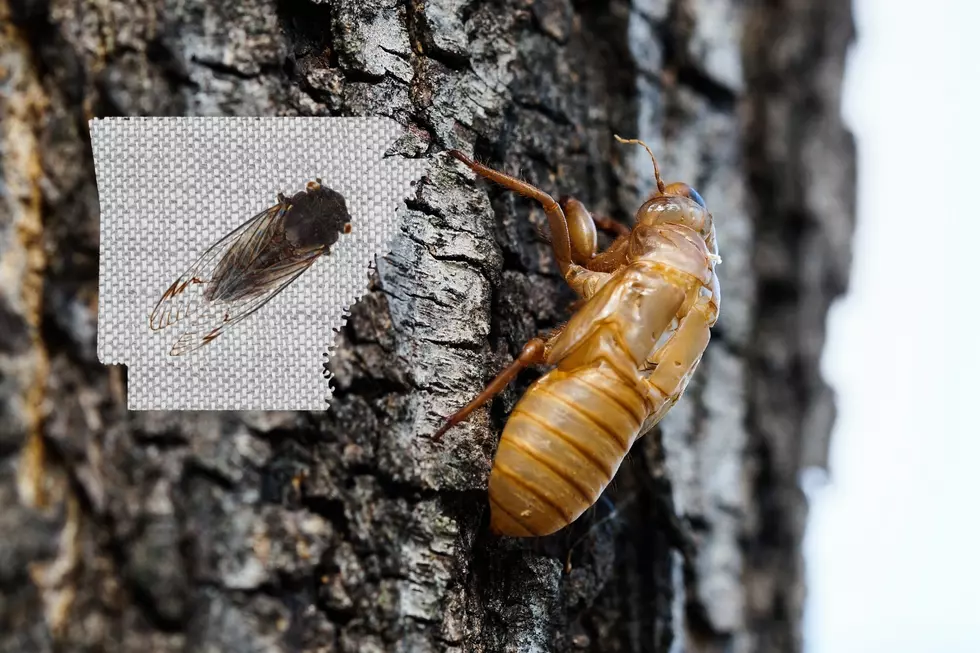
Cicada Invasion: See Map Where Cicadas Will be in Arkansas
Now that the solar eclipse is done what is next? How about an invasion of trillions of cicadas in the United States? Arkansas is expected to get hit hard beginning in the middle of May when they start to emerge from the ground, shedding their exoskeleton shell-like skin behind.
Cicada Invasion
This is part of two groups of periodical cicadas that show up every 13 years and those that come every 17 years, according to CBS News.
What makes this so rare is that the two groups of cicadas will emerge and merge arriving in excessive numbers that haven't been seen in generations.
Their sole purpose is to mate, molt, and die. leaving their offspring to lie dormant until the next brooding cycle. The two groups of cicadas that are expected are Brood XIX and Brood XIII, the cicadas will first be seen in the Southeast this hasn't happened since 1803 when two broods emerged together during the same time. The next emergence won't be until 2037.
Because of the uniqueness of the two groups of cicadas, it's being called "Cicada-geddon," as in Armageddon in the bible.
Zombie Cicadas?
With that many cicadas all at once, experts say that averages out to 1 million per acre over millions of acres. It's also being reported that some of the cicadas may have contracted a fungal pathogen known as Massospora cicadina making them more sexually active and turning them into "zombie cicadas." It's not known if the fungal infection will affect animals or humans in any kind of way at this time.
So, get ready for the sounds of these cicadas as they make their way across the United States and into parts of Arkansas. It looks like Texas may get lucky and escape the brunt of the cicadas according to the map below.
Plant Some Of These In Your Garden to Keep Mosquitoes Away
Gallery Credit: Michelle Heart
